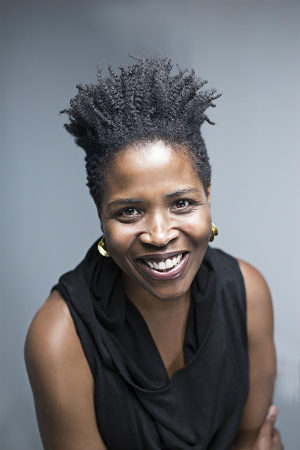In Their Own Words
Per Diem Press
Per Diem Press is an independent publisher dedicated to elegance, ferocity, and bewilderment, funded by cash given to the proprietor whilst visiting the set of a filmed adaptation of his work. The first three chapbooks are Rohan Chhetri, Jurassic Desire; Elizabeth Clark Wessel, first one thing and then the other; and Arisa White, Fish Walking, and other bedtime stories for my wife.
Toward Some Dark
by Rohan Chhetri
They came at dawn, three angels
in jumpsuits, and felled the two ash
trees in front of the neighbour's house.
Now from our porch, the view
of the sky stretched unbearable blue
rent open from a mesh of shadowgreen.
The smell of pine in the air, thick,
wild. I thought this is how we arrive
at clarity. Through some clearing
of the living. When Grandfather was dying,
we found the little money he'd squirreled
away in a box too embarrassed to bequeath it
to any of us. Him pleading to us through
the final hours to please pull the fuckin' shroud
off his head. It was the yellow mosquito
net hung low above the bed
where he lay hallucinating, furious
we were trying to ease him toward some dark.
Our flushed faces to him then
like the inhospitable cities of his youth.
So much loss manufactured by men alone,
so why not those angels at dawn
armed with their power saws putting back
simple terror into things.
Like the monsoons bringing the abattoirs
to the flooded city streets in Dhaka.
The bleeding child who supposedly asked,
Excuse me sirs, is your Lord counting
all unrequited airstrikes? Or
is His jurassic desire our extermination to be.
Now the wind flits on our porch like a young
unremembered thing, that one-legged
beggar I once saw hopping across the platform
to catch the Intercity, so he could beg
through the bogies, seven stations & back.
But don't forget the wind, it has lost something
& doesn't know it, sniffing about the heady
stink of sawdust & brine, stomping
on our roof again & again
like it has stepped on so much blood
drying from small wounds.
Rohan Chhetri on "Toward Some Dark"
The poem began on the porch of my Syracuse apartment in the fall of 2016, sometime in September. The most productive months for me in Syracuse were the fall months. I'd spend all weekend reading on the porch because once the long winter came it would be too snowy to sit out. I lived on a fairly quiet street, and at a certain point in the afternoon there'd be few cars, fewer people and only the sound of wind in the trees. On this particular day, some men were hacking through the two trees in the neighbor's yard that our porch overlooked, driving their yellow chainsaws into the trunk. Perhaps the trees were diseased. I sat through the entire thing reading on the porch. What surprised me was how the sightline cleared dramatically when they were finished and the sky became more visible bringing in a new wind now, almost surprised to blow into our porch without the impediment of leaves. The poem took off from feeling through this opening image. I sat there and worked on it long after the trees were hauled away, leaving behind just the smell of sawdust all evening. A composite poem, this one moves in various directions driven mostly through association of mood and imagery, sifting through the personal and the world at large, but the general tone of the poem is elegiac, and perhaps heavily colored by the political climate of the time. The poem was written, I think, very much in the wake of the escalating tensions in Syria at the time, the presidential elections looming in the US, and the state violence in Kashmir that summer. Ultimately, the poem resolves not so much in loss, as what seeks and notices the loss. A loss that may not necessarily belong to humans.
Empires
by Elizabeth Clark Wessel
Once I flew over Greenland, like a god
This is what it is (was) to be a citizen of the empire
Because the sky and seat were right
I saw the melting glaciers turn the blue sea white
I stared down from miles above
and thought I was
an ordinary person
in a regular body
I captured images and sent them everywhere
We all did
Did you know Erik the Red called it Greenland
to entice his countrymen
They built a tiny copy of their civilization there
Then they disappeared
Starved, drowned?
No word ever reached us
When the bishop's ship finally arrived searching for its tithe
the captain found their wooden keeps empty
Elizabeth Clark Wessel on "Empires"
This is a short poem, but it's an attempt on my part to bring together a lot thoughts, anxieties, emotions, notions that I have about myself in relation to our past, present, and future environmental crisis. To begin with there's just the heady pleasure implicit in being a consumer of resources in the global north, a middle class person (coded normal, ordinary) who experiences flying over one of the most remote and uninhabitable regions of the earth, seeing that geography from a perspective few living things have ever had. It feels simultaneously god-like and banal, and in some way that in itself is metaphorically ominous. But beyond that, I was struggling with an awareness of the present moment as a result of colonialism, and specifically the violence of settler colonialism – which my very existence depends on as the great-great-granddaughter of white settlers of the Great Plains, the beneficiaries of a genocide, whose land practices in the aggregate were and are environmentally disastrous up to and including my own life. Those white settlers were part of the expanding edge of an empire, just like the Greenland Vikings, and they also sent (misleading) word home to attract more settlers. Time is an important element here. The future is in the past. The mystery is not just the disappearance of the Greenland Vikings, but the impulse of empire, which, like climate change, is a hyperobject my mind struggles to contemplate. So this short poem is just one attempt, one gesture towards engaging with the deep time layered beneath the present moment.
Arisa White on "Fish Walking" & other bedtime stories for my wife
Six of the seven poems from "Fish Walking" & Other Bedtime Stories for my Wife started out as a collaborative project with my friend, and fiction writer, Soma Mei Sheng Frazier. It was October 2014. Soma called, maybe on her drive home from work, since this was often our routine, talking about her submission to McSweeney's. It didn't "slay enough" to be let through. It was a funny little list Soma had written of thirteen inventions undergoing SWOT analysis. Reading it again, I still enjoy "A gun that shoots out more guns." The flipside to the rejection, the editor was encouraging.
We talked on, considering rhetorically what it would mean to slay for different audiences. Particularly a regular white straight twentysomething guy. An audience we felt most removed from. We reflected on movies we've watched that targeted that demographic, and so we discussed the plot elements of Superbad and the Hangover. Our study was shallow but the conversation went deep. We landed on some of the following themes that appeared to hold appeal: Scatological humor. Gratuitous violence. Escapism. Self-deprecation. Hypersexualized females. Arrested development. Inebriation. Then we would fit these themes, but not forcibly, into the bedtime-story mode.
Fourteen bedtime stories, for which we each wrote seven, that we would later blend and send to McSweeney's. Seventy-one words per piece was our word limit. It was "written every night before bed," for a week. I started the week of Halloween, and I couldn't help but have trick-or-treaters appear in "Fish Walking."
Looking back at emails between Soma and me, it's cool to see the times I recorded writing the poems: 10:04pm 10:11pm 10:21pm 10:08pm 11:11pm [one time went missing] and 8:55pm was an early night for me.
My nighttime mind is a curious thing; it gave no-cares about making sense as if was daytime. I found sense in the immediate, in feeling the body quiet and settle, one grain at a time. Too, there was this elemental need to bring closure to my day. For that reason, the pieces in "Fish Walking" were attempting to meet that need.
I started to share my bedtime stories after night four. So that Soma could write "seven slaying 'translations,' à la Luther the Anger Translator, but instead it would be like what the poet is trying to tell you unsophisticated idiots but taken to a "ridonk extreme." I thought why-not. Here is my night one, now the opening poem "unhatched" in "Fish Walking":
Unhatched
Once she came across an egg and the egg was in the green of a field and she saw no mama in sight. She took the egg into her arms, into her house, and waited for it to crack. She tapped on it. Knocked it down by accident and the shell broke and the egg remained. She cussed it till her throat went sore, threatened to eat it whole. Promised.
And here is Soma's "translation":
(10:53pm)
First, the wordless symphonies: percussive heart, stringed voice box and other organs harmonizing like a family of flesh-hewn musical instruments. But families are rarely clear-cut. For instance, some authorities regard the cor anglais as an invalid member of the oboe family because – despite similar construction – its narrow bore and piriform bell create a singular tone quality. "Born on the wrong side of the blanket," the aunties whispered. The uncles whispered "Bastard."
Soma completed her week of "translations" and when we went to combine our pieces, it was like apples and pinecones. It never made it to McSweeney's. We both allowed our individual pieces to thrive elsewhere, but the collaboration brought play and humor to my writing practice in pleasant absurdist ways.





